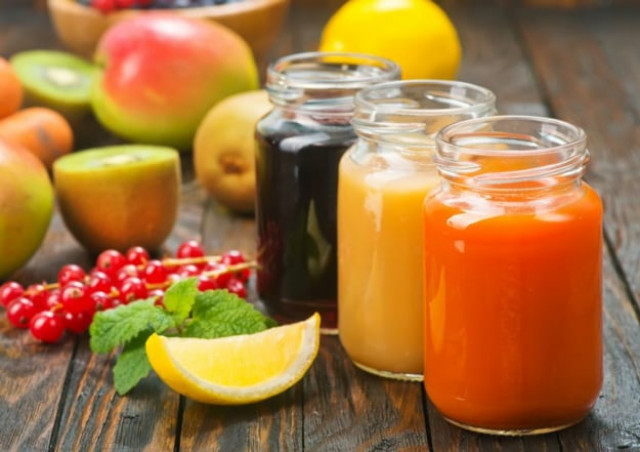Beverage industry calls for tariff reforms
PFVA suggests 20% FED on aseptic packaging on imports instead of imposing FED on final product

Pakistan's food and beverage industry has urged the government to implement tariff reforms to lower production costs, enhance exports, and support local industrial growth.
The All Pakistan Fruits and Vegetables Exporters, Importers, and Merchants Association (PFVA) has proposed budgetary measures, including increasing taxes on finished goods and reducing taxes on raw materials.
PFVA emphasised the crucial role of the food and agriculture sector in Pakistan's economy. However, high tariffs on essential raw materials, packaging components, and imported production elements are limiting growth.
Provisional real GDP data for the first quarter of fiscal year 2025 showed a modest growth of 0.9% compared to 2.3% in the same quarter of fiscal year 2024. This slowdown was primarily due to a sharp deceleration in agriculture sector growth to 1.2% in Q1-FY25, down from 8.1% in the same period last year, according to the State Bank of Pakistan (SBP) governor while announcing the monetary policy on January 27.
The proposed reforms focus on cost reduction, efficiency enhancement, and export growth, said Waheed Ahmed, Patron-in-Chief of PFVA. "By reducing production costs and ensuring a level playing field for local manufacturers, Pakistan can strengthen its presence in international markets."
One key recommendation is lowering import duties on packaging materials such as plastic and paperboard, which currently face high tariffs of 16% and 20%, respectively. PFVA suggests standardising these duties to 8-10% and offering exemptions for exporters, which could significantly reduce packaging costs and make Pakistani products more competitive internationally.
While the government has implemented the Export Facilitation Scheme (EFS) to benefit exporters, certain suppliers who do not directly export but supply processed materials to exporters are still subject to duties, Ahmed noted. PFVA suggests that suppliers of exporters should either be exempt from duties (0%) or be allowed to import materials at a nil-tax rate. This would enable local exporters to obtain materials at lower costs, making their products more competitive globally.
To protect local agricultural produce, PFVA proposes increasing the Regulatory Duty (RD) on imported tomato paste from 20% to 40%, encouraging manufacturers to use locally grown tomatoes. This measure is expected to boost demand for domestic agricultural products and reduce reliance on imports.
Despite a current customs duty of 20% and an RD of 20%, imported tomato paste prices remain lower than local production costs, Ahmed stated. The government should encourage local manufacturers to source from domestic agriculture, boosting investment in food processing and strengthening local supply chains to prevent excessive reliance on imports. He urged the government to review import data on agricultural products to implement protective measures and support domestic farmers.
Another critical reform focuses on reducing import duties on aseptic bags used in juice packaging, which currently face high customs and regulatory duties, including a 20% customs duty, 6% additional customs duty, and 10% RD.
Lowering these taxes would cut juice production costs and strengthen the competitiveness of local manufacturers. Additionally, PFVA recommends shifting the 20% Federal Excise Duty (FED) on fruit juices to the import stage of aseptic packaging, preventing tax loopholes and ensuring fairer taxation.
The government currently imposes a 20% FED on locally supplied fruit juice in aseptic packaging. However, many local manufacturers bypass this tax by importing materials, producing juices domestically, and selling them in the market without paying the appropriate taxes.
Instead of imposing FED at the final product stage, Ahmed suggests applying a 20% FED on aseptic packaging at the import stage. This would prevent tax evasion and ensure that all industry players operate under the same tax conditions. "The impact will manifest in increased government revenue and a level playing field for all manufacturers," he said.
These reforms aim to create a more stable tariff structure, attract investments, and support local manufacturers, he added. If implemented, they could enhance Pakistan's processed food exports, strengthen domestic production, and align with the government's broader economic growth strategy. The industry is urging policymakers to incorporate these measures into the upcoming budget to ensure long-term sustainability and global competitiveness.


















COMMENTS
Comments are moderated and generally will be posted if they are on-topic and not abusive.
For more information, please see our Comments FAQ